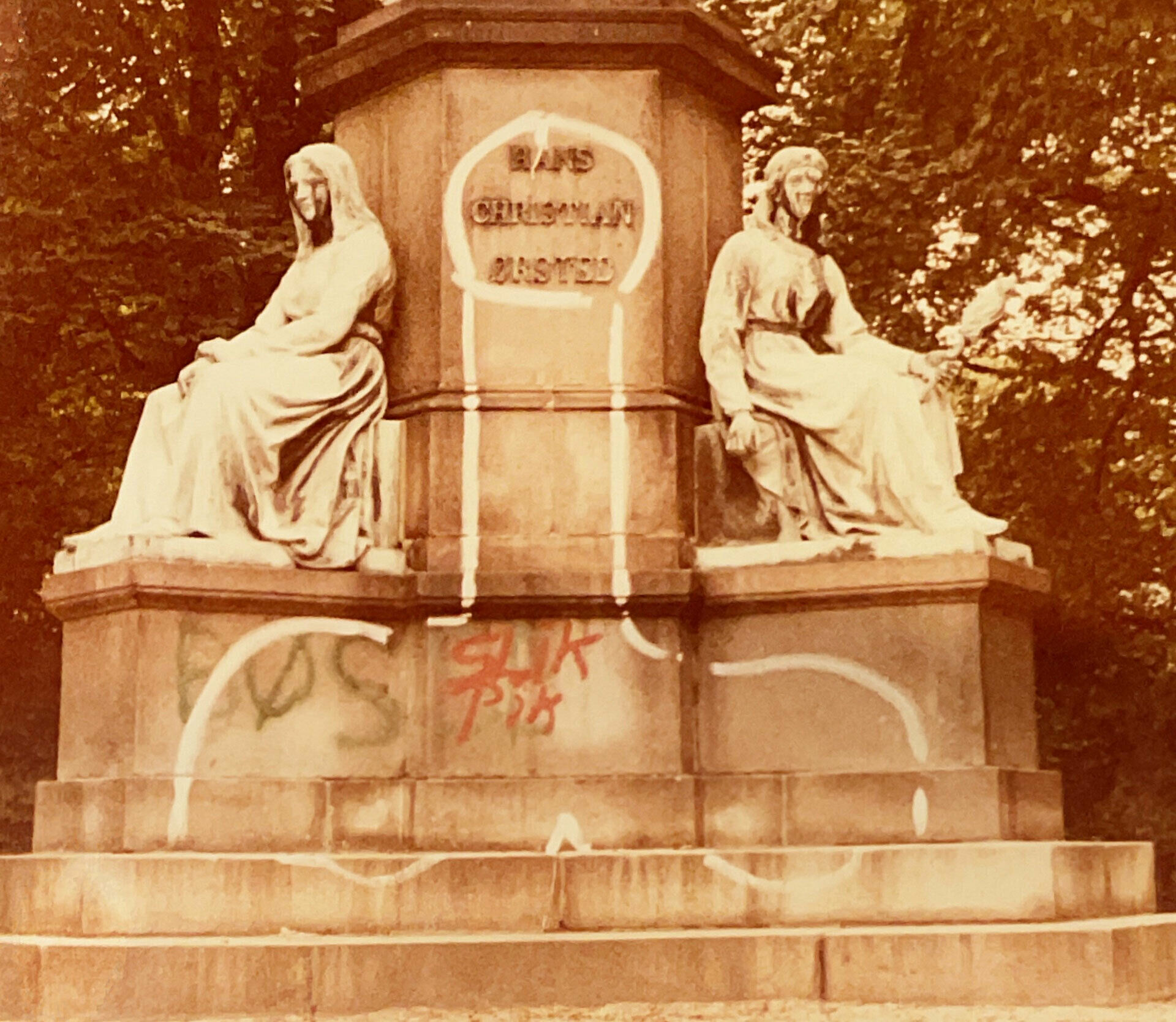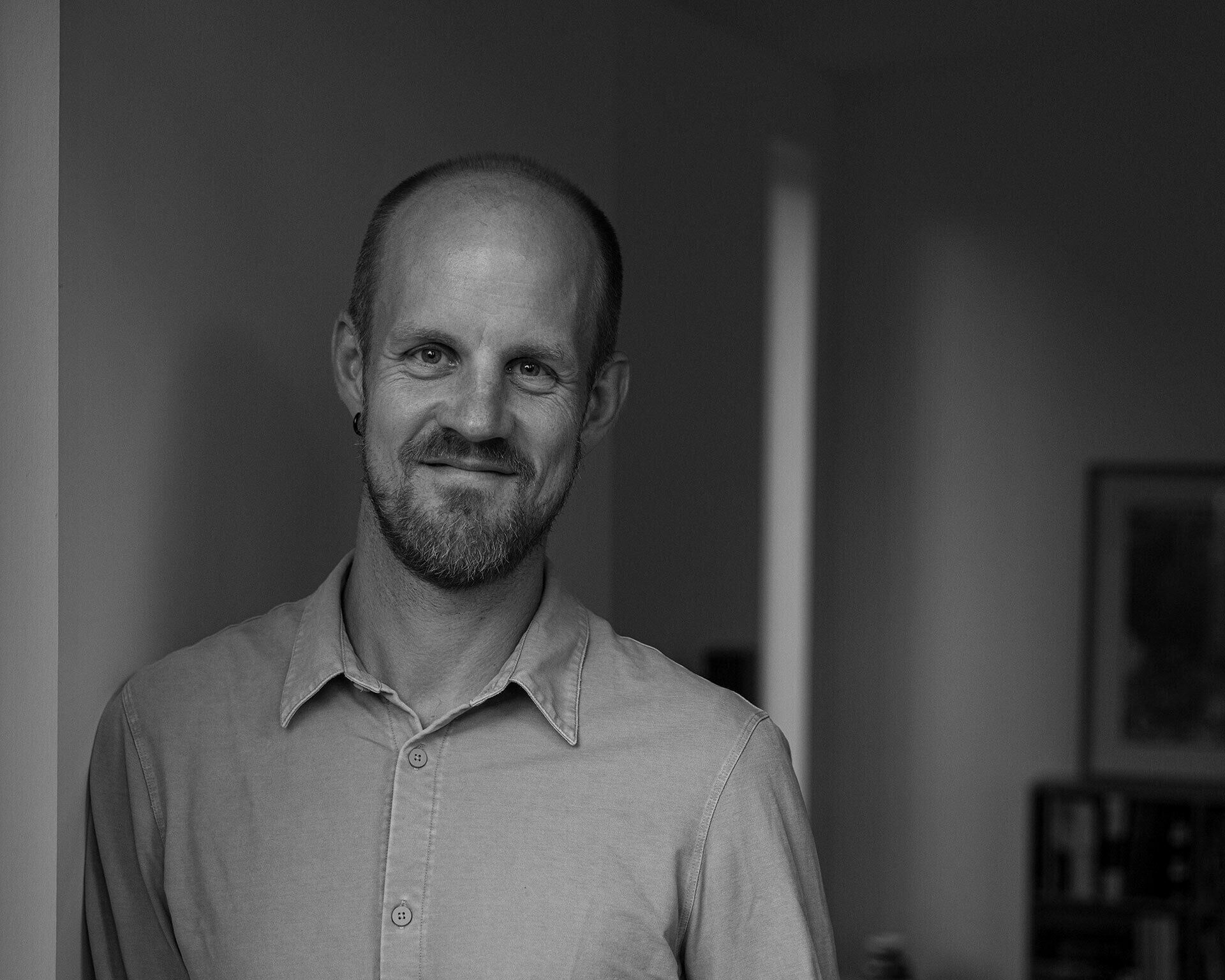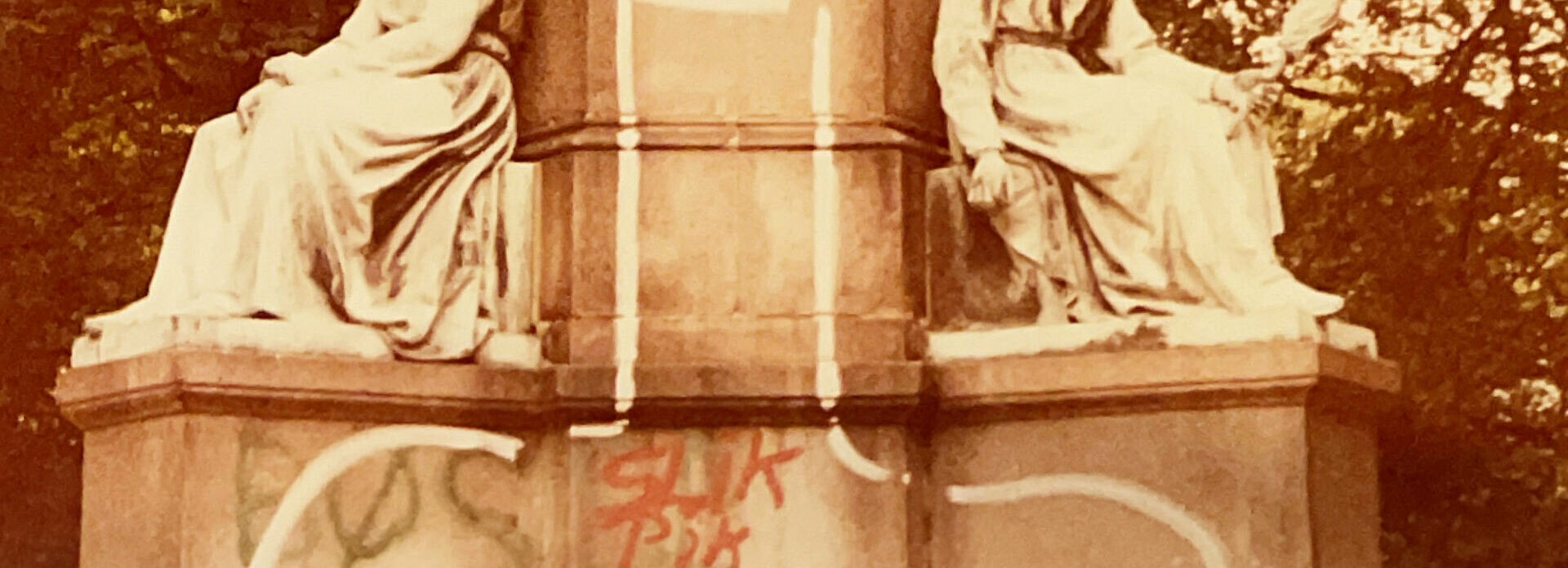In this lecture Danbolt discusses the recent queer turn towards memory and memoralization by focusing on how sculptures and monuments in a gay cruising park in the city center of Copenhagen bear traces of histories of queer resistance. In English.
Date and time
Saturday 21 September, 14:00-15:00
Location
The South courtyard, entrance floor
Language
English
Admission
Free
No pre-bookings, limited number of seats.
When Ørstedsparken opened in the 1880s, the public was also exposed to a series of fourteen copies of bronze sculptures from Greek and Roman antiquity. Since then, these sculptures have been witnesses and bystanders to more than a century of sexual encounters, homophobic violence, and queer resistance.

Sculpture in Ørstedsparken. Unknown photographer.
This talk zooms in on a series of interventions in the park in 1984 by the gay activist group Bøssernes Befrielses Front, who painted sexual symbols and gay activist slogans on all the monuments in the park, in order to address how public monuments can function as a surface for public negotiations of gender and sexual norms and practices.
Grafitti on public monuments are often understood as “vandalism” and “defacement”, and therefore immediately removed. Despite the continual renovation of public sculpture that works to secure that their surfaces remain clean and pristine, traces always remain. Drawing on Vaginal Davis’ resistance to “patriarchal forms of governance” and her cultivation of what Robert Summers has called “an aesthetic strategy of whimsy”, this lecture cruises around monuments in public parks in Copenhagen in search for traces of histories of queer resistance and memorialization.
The 45 minutes lecture will be followed by a short conversation about the artist Vaginal Davis and her ongoing Stockholm-exhibitions between Mathias Danbolt and Hendrik Folkerts, curator at Moderna Museet.

Mathias Danbolt. Private photo.
About the speaker
Mathias Danbolt is Professor of Art History at University of Copenhagen, Denmark. Over the last decade his research has focused on the politics of history and historiography in art and visual culture, with a special focus on queer, feminist, and decolonial perspectives. Danbolt is currently working on the contact zones between art history and colonial history in a Nordic context with an emphasis on memory politics, monuments, and art in public space. His latest publication is the anthology Searvedoaibma: Art and Social Communities in Sápmi (2024), co-edited with Britt Kramvig and Christina Hætta.
